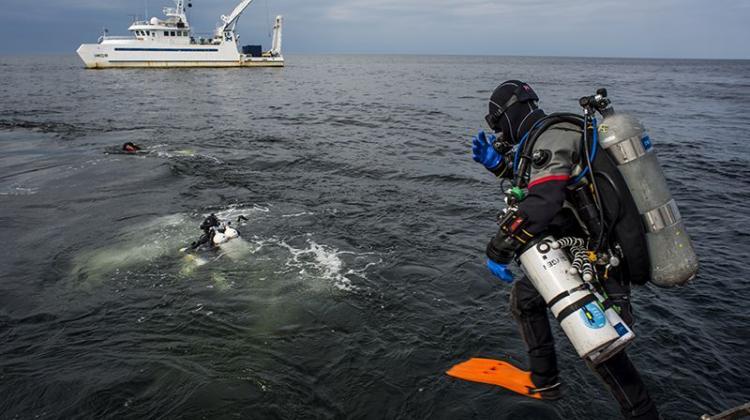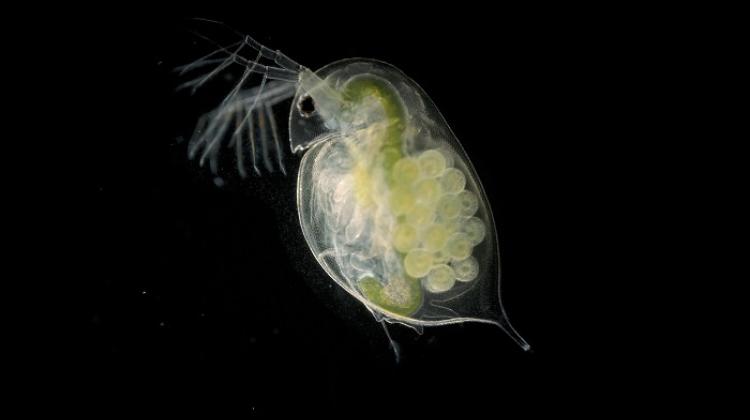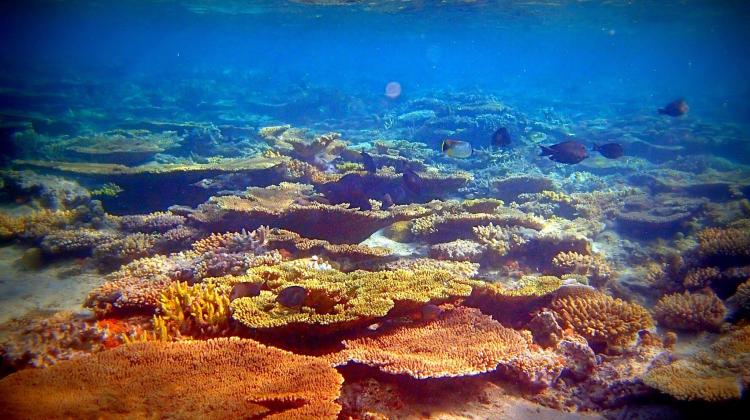Wrecks on the bottom of the Baltic Sea are a potential environmental hazard
 Photo: Krystian Bielatowicz
Photo: Krystian Bielatowicz
As many as one hundred wrecks resting on the bottom of the Baltic Sea can be potentially dangerous for the environment. Dozens of them, including the tanker Franken, may be located in the Polish Baltic zone, warn scientists and environmental activists.
Scientists and environmental activists discussed the threats posed by wrecks resting on the bottom of the Baltic Sea during the International Baltic Shipwrecks Conference in Warsaw, organized by the MARE Foundation and the Maritime Institute in Gdańsk.
Participants spoke about the wreck of the tanker Franken, resting in the Gulf of Gdansk. The ship sank at the end of World War II. According to Olga Sarna from the MARE Foundation, it is potentially the most dangerous wreck in the Polish territorial waters - due to its cargo.
"We estimate that there could be up to 1.5 million litres of fuel there" - said Sarna in an interview with PAP. She noted that it could be much less. "But even if it is half a million (litres - PAP), we are talking about a very large potential damage to the environment, because if this fuel leaks, it can get to the beaches, it can pollute the entire coast of the Gulf of Gdansk, many habitats. Many protected species of animals may suffer or even disappear completely" - Sarna said.
She added that the leakage of fuel from Franken may also cause economic losses for the region. "People will stop coming to the Baltic Sea, all tourism will have big problems if such a leak from this wreck occurs" - she stressed.
"If we do not act, we will have a bigger problem" - Dr. Benedykt Hac from the Operational Oceanography Department of the Maritime Institute in Gdańsk told journalists. He explained that there may be pollution of beaches and the environment. This, in turn, means material losses, for example caused by closing beaches, that "reach huge millions". "Closing the resorts in the Gulf of Gdansk in the first season could cost up to half a billion zlotys" - estimated the scientist.
That is why the MARE Foundation lobbies to neutralize the threat: pump fuel out of the tanks of the wreck. The cost of the operation is estimated at a maximum of 20 million euros, Sarna told PAP.
The activist added that this was not the only threat from wrecks, as there were as many as one hundred potentially environmentally hazardous wrecks in the entire Baltic Sea. According to Dr. Hac`s calculations, there could be even several dozen of them in the Polish zone of the Baltic Sea alone (the area of approx. 30,000 km2).
In April 2018, an expedition to the Franken wreck was carried out, in which a research vessel and specialists from the Maritime Institute in Gdańsk participated. It turned out that the tanker area was already polluted. This could be a consequence of leakage at the time of sinking, the researchers note.
Dr. Hac stressed that the problem of wrecks with dangerous cargo lying in the Baltic should be approached in a systemic manner, and technical solution or lack of knowledge and experience were not an obstacle. "A dozen or so such operations are conducted in the world each year" - he said. Olga Sarna gave the example of projects in the territorial waters of Sweden or Finland.
According to Sarna, the steps taken with regard to the wreck of Franken are a pilot project, because it is only the "the tip of the iceberg". It is also necessary to study other wrecks. "Many other wrecks in the Baltic have not been studied, so it is difficult to say where the next threat may be" - she pointed out.
Asked when a leak from Franken could occur, Sarna said that this could happen "any time". She pointed out that due to the warming of the Baltic Sea waters, the corrosion of the ship`s structure may accelerate and, as a result, leakage may occur.
Another threat posed by wrecks from World War II are chemical and conventional weapons - reminded Dr. Hac.
PAP - Science in Poland, Szymon Zdziebłowski
szz/ zan/ kap/
tr. RL
Przed dodaniem komentarza prosimy o zapoznanie z Regulaminem forum serwisu Nauka w Polsce.


















